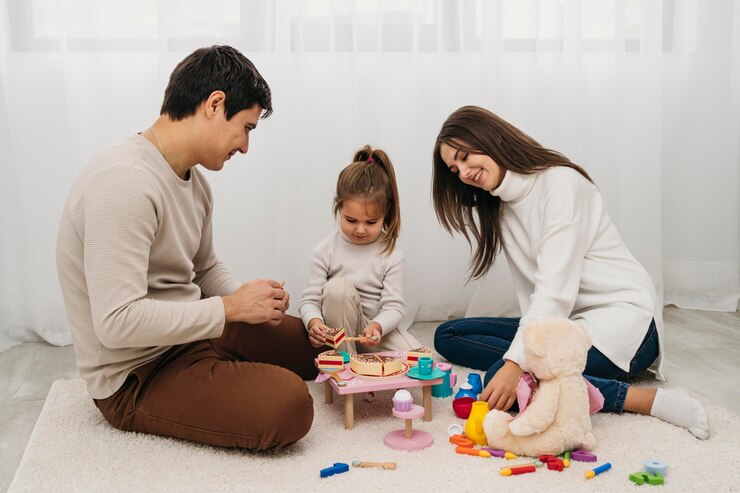Studies show that children do very well in all areas of life if co-parents are on good terms and there is minimum disruption in children’s lives post-separation. We encourage our clients to start with the proven adage that happy parents make for happy children, and it is worth spending some time working out your best parenting plan with the assistance of a family mediator.
There are several aspects that go into creating a thriving parenting plan. We set our clients on the path to co-parenting success post-separation by helping you answer questions like: Who will make the major decisions for the children? What will the regular schedule and holiday schedule be for the children? What mechanisms will you put in place to review your parenting plan periodically and to resolve disputes if they occur down the line?

Ontario law now focuses on the relationship of both parents with their children, so rather than speaking about ‘custody’, the question the law asks is who will have ‘parenting time’ with the children and make decisions for them? Both parents have the presumption of ‘decision-making’ (joint decision making), but depending on circumstances, parents may decide on sole decision-making or divided decision-making (where one parent decides certain aspects of the child’s life, and the other parent decides others). There is no presumption in the law of both parents having equal time with the children, nor of any one parent solely residing with the children; it all depends on the cirsumstances. For more information about parenting time, click (here).
It is recommended to know the legal principles behind parenting orders at the outset of your negotiations, so that you are aware what you might expect a judge’s decision to be if you decide to terminate mediation and proceed to litigation. Federal and Ontario law requires judges to apply the overarching principle of a child’s best interests when any parenting order is issued. There is no presumption of equal parenting time, rather the bond of the child with each parent is considered, as is each parent’s willingness to support their child’s relationship with the other parent. Past conduct of either parent is not a consideration unless it directly relates to child rearing, and the wishes of the child are considered, especially once in their teens. Courts highly recommend that parents resolve parenting issues on their own, since they know their children and their family dynamics the best. We at Affinity Mediators are here to assist you to formulate your best Parenting Plan.
The parenting arrangement worked out on your own can take many varied forms, but we as mediators present some typical models for you to look at. Parents find it useful to have a starting point, to which you can add specifics to truly make it your own. You may have the following models of parenting arrangements:
Some children live with one parent and others live with the other.
Each parent lives with all the children roughly half the time (parenting is considered shared so long each parent is with the children at least 40% of the time). There are several formulations, including week on, week off and split week, and what works best will depend on your unique circumstances and the ages of the children.
The children live with only one parent, while the other parent has parenting time on the weekends, or evenings. The particulars of this type of contact are worked out during the course of mediation, depending on your unique circumstances and the ages of the children.
The type of parenting plan you decide on will impact who pays child support to whom and how much. For more information on child support click (here).
An important aspect of creating a thriving Parenting Plan is to ensure as much stability as possible in the circusmtances. Co-parents are therefore encouraged to build into their Parenting Plans clauses that deal with relocating situations. What will happen if the primary residential parent has to relocate with the children? How will parenting time for the non-residential parent be facilitated? The law provides that the overarching principle of the ‘best interests of the child’ should be applied.